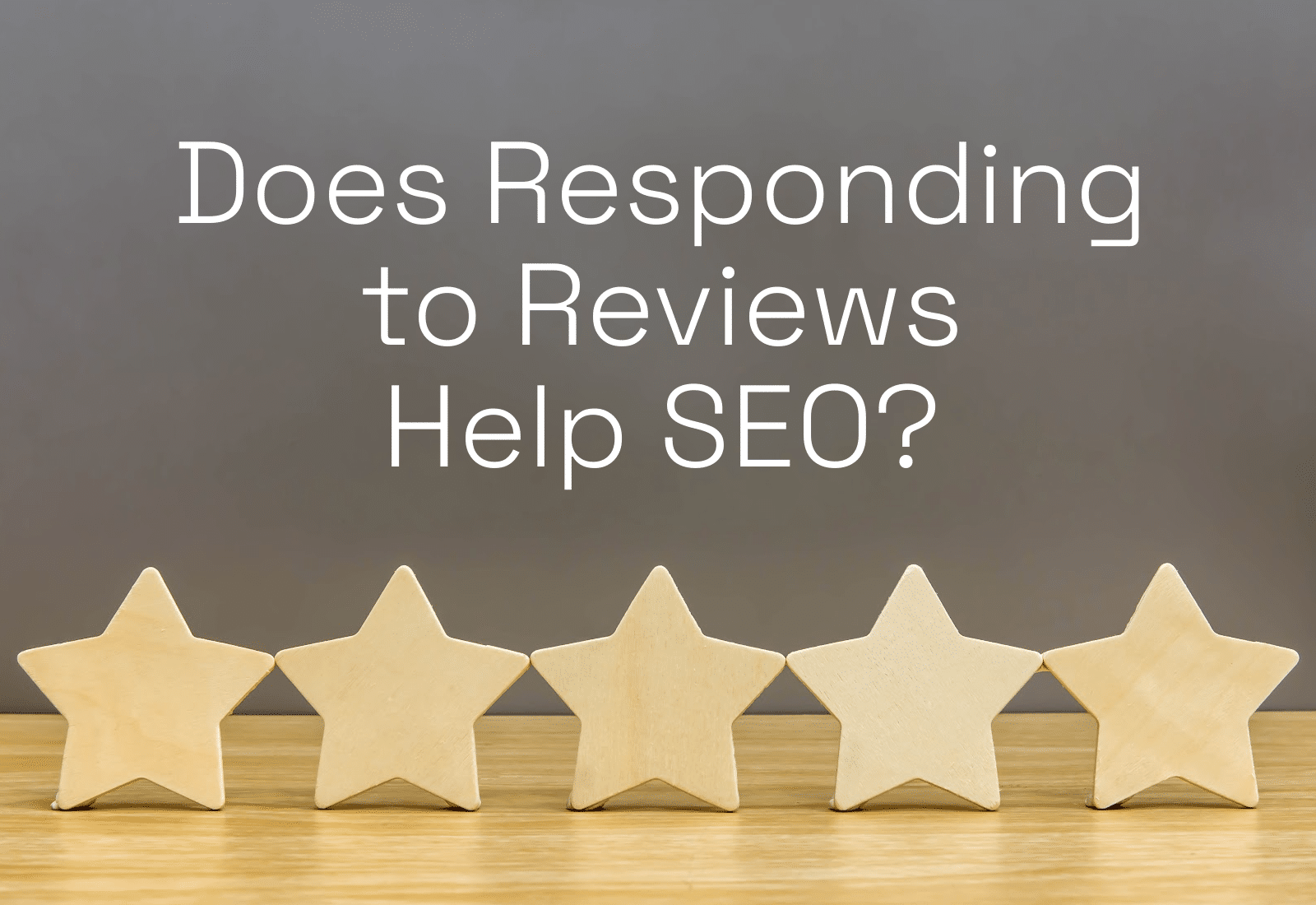Google reviews can make or break a business.
But does responding to reviews help SEO?
As a business owner, you know that reviews matter. Whether they’re positive or negative, reviews give prospective customers information that helps them decide whether or not to give you their business.
It’s no secret that reviews can be a driving force behind the success (or failure) of your business. But what about how you interact with those reviews?
In short, does responding to reviews help SEO?
The answer is not as simple as you might think.
In this article, we’ll explain the complex relationship between reviews and SEO.
What Is SEO (& Why Does It Matter)?
Search engine optimization (SEO) is more than just a catchy buzzword, it’s a vital part of understanding your internet presence.
When you Google something, you’re used to receiving thousands of results almost instantly. But there’s a lot that happens behind the scenes of a web search.
First, Google’s algorithm searches its vast library of indexed sites in an attempt to find pages that relate to that topic. Then, it ranks them in order of relevance and serves it all up in a handy list format.

That’s how search engines work, but where does SEO fit in?
Search engine optimization is the act of changing a website to make it more likely to show up higher in that list for a particular keyword.
For instance, if you have a spectacular Orlando wedding venue, you may want to optimize your site for the keyword “Orlando wedding venue” so that people who search for that term are more likely to come across your site.
So where do reviews fit into all of this?
That’s where local SEO comes in.

Why Local SEO Matters
If you rely on foot traffic or you only do business in a specific geographical area, you need to be looking at local SEO.
And one of the core strategies for local SEO involves setting up (and optimizing!) a Google Business Profile complete with—you guessed it—reviews.
Your Google Business Profile (GBP) is like a snapshot of your business that is shown to web users who are located near you. These local results are displayed on an interactive map (in a section known as the “map pack”).
Most importantly, they are displayed higher on the list than any other result (except ads).
Which is why, when you search for “chiropractor,” you’ll see a list of chiropractors in your area before you come across a definition of the word.
When it comes to local SEO, getting the most out of your GBP isn’t just a good idea, it should be your top priority.
We always recommend asking for, and responding to, reviews in order to optimize your Google Business Profile. But why? Does responding to reviews help SEO?
Say Hello, and Let's Get To Work Together
Does Responding to Reviews Help SEO?
Not really.
Google looks at about 150 different factors when determining which pages or profiles to display on a search results page. And while “presence of owner response to reviews” is on that list, it ranks 111th.
So many other factors have more bearing on your local SEO scores.
But I want to make one thing very clear: This doesn’t mean you shouldn’t respond to reviews.
SEO, even local SEO, isn’t the only thing you should be concerned about as a business owner. After all, search engines don’t buy from you.
But people do. And people care about how they’re treated.
When you take the time to respond to reviews—positive or negative—you’re not just interacting with one customer, you’re showing other people what it’s like to deal with your business.
Reputation Management should be just as high on your radar as SEO.

How To Respond To a Google Review
So what happens when a new review goes up on your Google Business Profile? Here are a few things to keep in mind when responding to Google reviews.
1. Respond to both good and bad reviews.
No one likes to hear negative feedback, but ignoring bad reviews won’t make them go away.
In fact, responding to negative reviews with tact and compassion will go a long way toward building a reputation for excellent customer service.
2. Respond in a timely fashion.
Do your best to respond to reviews within a few days after they’re posted.
Waiting weeks to respond—even to a positive review—gives the impression that you’re not checking your reviews regularly or that you don’t care about customer service.
3. Be professional and courteous.
I know, it hurts to see your business put on blast in a public forum. But remember, your response is public, too!
Resist the temptation to place blame on the reviewer or be dismissive of their concerns. Unless their review is outright racist or something, in which case, have at it.
4. Apologize.
When responding to a negative review, an apology can go a long way toward mending broken fences. Just make sure to avoid taking responsibility for things that weren’t your fault.
Sometimes, a simple “I’m sorry you were unsatisfied with your experience” is enough.
5. Reach out.
Finally, offer to discuss the matter with the reviewer over the phone or email. This not only removes any further hostility from the public eye, it provides an opportunity to resolve the issue.
Plus, other people will appreciate your attempt at conflict resolution. (Reputation Management at its finest!)
Conclusion
While responding to reviews doesn’t help SEO directly, it does help your business.
No matter what industry you’re in, a double-pronged approach that combines SEO with good old-fashioned customer service will never steer you wrong.
To boost your local SEO, make sure you’re taking your Google Business Profile as seriously as your website. And that includes responding to reviews (even if they don’t improve your search engine rankings).
At Clarity Creative Group, we’ve been helping small- to mid-sized businesses boost their online presence and reach their goals for more than a decade. If you’re looking for an SEO expert, we’d love to meet you!
Contact us today so we can learn more about your business.







